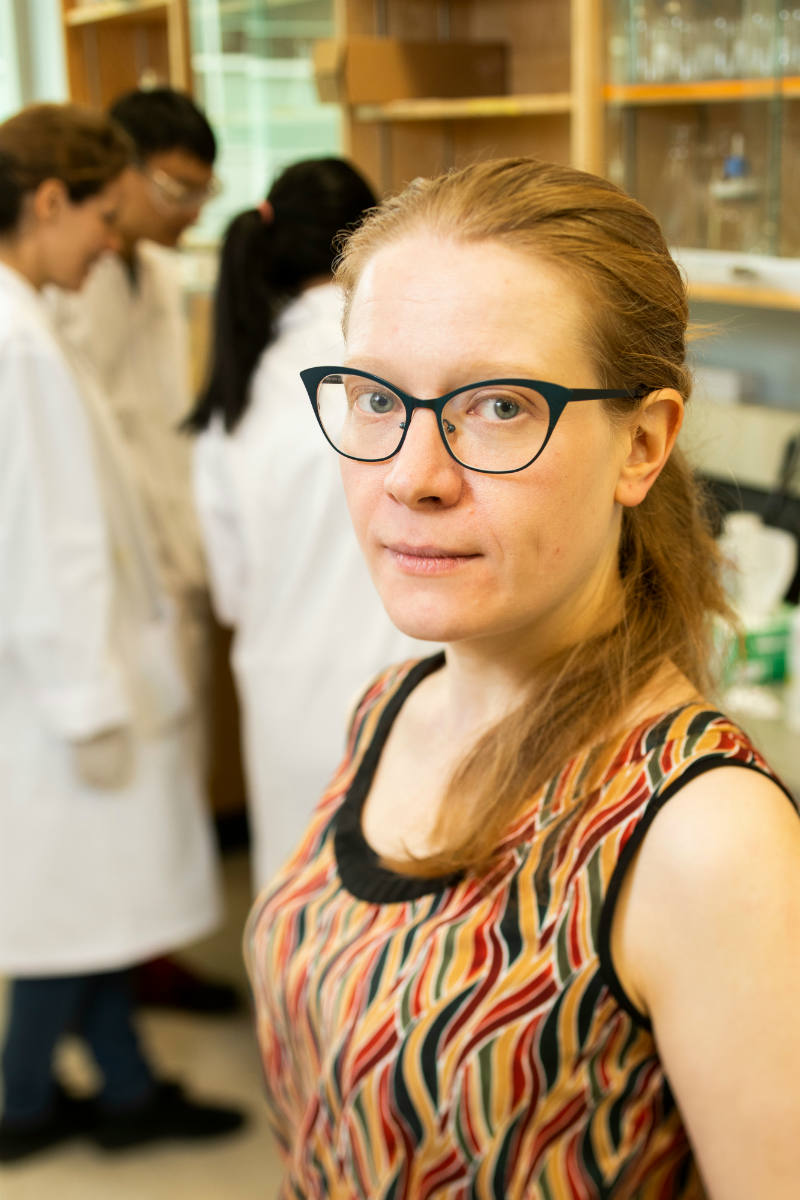
Sasha Wilson, associate professor in the Department of Earth and Atmospheric Sciences, is one of five researchers in the Faculty of Science receiving support through JELF funding. Photo credit: John Ulan
Five researchers in the Faculty of Science were awarded funding today from the John R. Evans Leaders Fund (JELF), a Canada Foundation for Innovation (CFI) initiative. JELF funding enables researchers to invest in the advanced research infrastructure and tools required to push the boundaries of their respective fields. The five projects also received matching funds from the Government of Alberta.
In 2019, JELF is supporting 186 projects across Canada, with 16 projects valued at $3 million at the University of Alberta.
Learn more about Faculty of Science researchers and their projects below.
Illuminating dark matter
Marie-Cécile Piro, assistant professor in the Department of Physics, is passionate about dark matter, a mysterious and fascinating element of our universe that has never been observed in the way protons, neutrons, electrons, and neutrinos have. Her current research includes collaborations on two projects operating out of the Sudbury Neutrino Observatory with Professor Aksel Hallin, and PICO with Professor Carsten Krauss.
Piro received $200,000 in JELF funding for developing new detector technology, including the use of ultra-low radioactivity gases for rare event searching. Learn more about Piro's research.
Under pressure
Geochemist Matt Steele-MacInnis, assistant professor in the Department of Earth and Atmospheric Sciences, focuses his research beneath Earth's surface, examining hydrothermal systems, or the hot fluids that crystallize minerals.
Steele-Macinnis received $211,440 to support his study of the properties of geologic fluids, linking physical and atomic-scale properties at elevated temperatures and pressures. Learn more about Steele-MacInnis.
Powerful partnership
Glen Uhrig uses the power of proteomics, which is the study of proteins and their different functions, to fine tune botanical biotechnology.
Uhrig, assistant professor in the Department of Biological Sciences, is co-lead on a project with Oliver Julien in the Faculty of Medicine and Dentistry. The project received $686,000 for work on quantitative proteomics infrastructure for both fundamental and applied agricultural and health science research. Learn more about Uhrig's research.
Captivating carbon capture
Economic geologist Sasha Wilson knows that one mine's waste is another's potential tool for environmental remediation. An associate professor in the Department of Earth and Atmospheric Sciences, Wilson studies metals recovery and carbon sequestration, finding ways to improve remediation practices for industry that are both effective and inexpensive.
Wilson received $180,455 for infrastructure to support her research on metal resource recovery during carbon capture utilization and storage in waste minerals and waste water. Learn more about Wilson's work and that of her lab.
A new look at neutrinos
Like his colleague Marie-Cécile Piro, Juan Pablo Yañez centres his research on an enigmatic element of our universe: neutrinos. An assistant professor in the Department of Physics, Yañez is focused on developing a new instrument, more sensitive and accurate than ever before, to study neutrinos in new and different ways.
With current detection technology that is nearly 100 years old, the time is now to develop new sensors for observing neutrinos in action. Yañez received $200,000 in JELF support for his research on the development and characterization of an innovative hybrid photosensor. Learn more about Yañez's work.